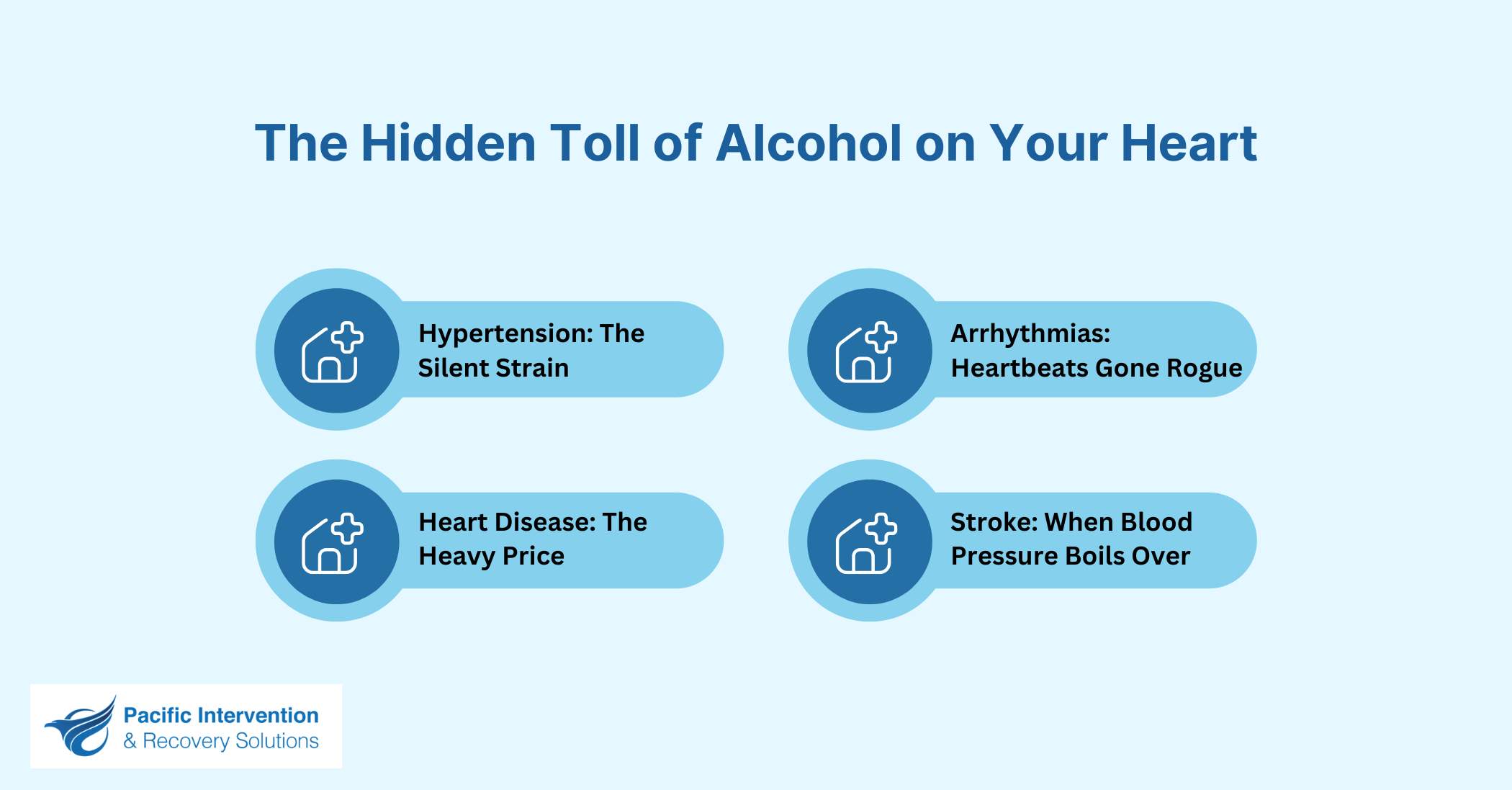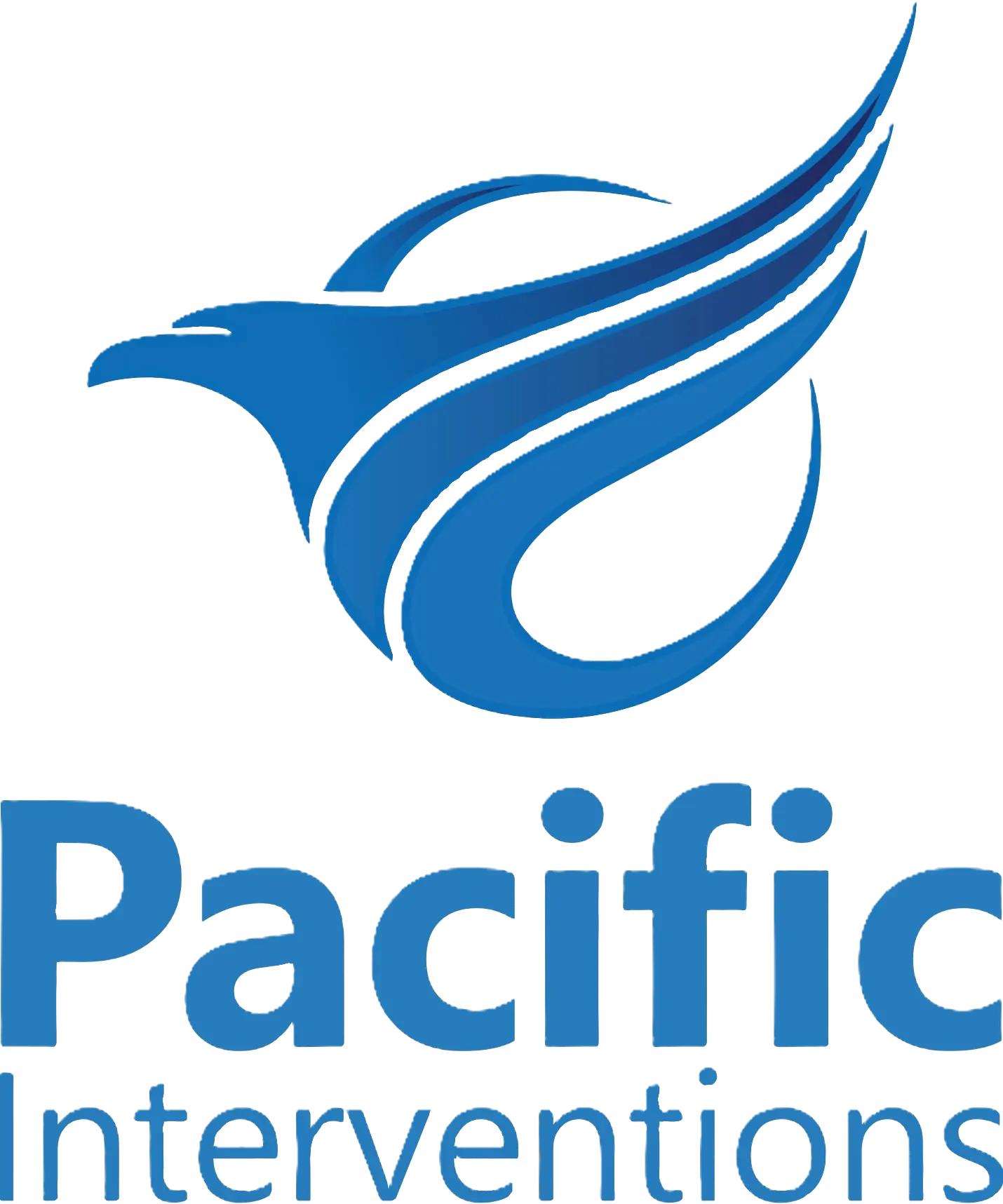Alcohol, a staple at parties and dinners, can be a silent saboteur of your heart health. Beyond the buzz, it impacts your blood pressure and exposes you to serious risks like hypertension and heart disease.
In Canada, where excessive alcohol consumption is alarmingly common, it’s crucial to understand how drinking affects your cardiovascular system and how to protect yourself from the dangers.
Let’s uncover the truth about alcohol and heart health.
Why Alcohol Makes Your Heart Work Overtime: A Closer Look at Blood Pressure
Alcohol doesn’t just relax you; it also messes with your blood pressure. Whether you enjoy a casual drink or find yourself in binge territory, the effects are tangible and measurable:
- Short-Term Impact: After a drink, your blood vessels temporarily constrict, spiking blood pressure. This “fight or flight” response can strain your heart.
- Long-Term Damage: Habitual drinking creates chronic hypertension, a significant risk factor for heart attacks and strokes.
The Red Flags: Heart Problems Linked to Drinking
Alcohol doesn’t just affect your mood—it puts your heart at risk in ways that might surprise you. From temporary disruptions to long-term damage, the impact of drinking on your cardiovascular health can be severe.
Let’s break down the key dangers alcohol poses to your heart, and why moderation or quitting is essential for your overall well-being.

1. Hypertension: The Silent Strain
Heavy drinking forces your heart into overdrive. Chronic high blood pressure damages your arteries and leaves you vulnerable to conditions like kidney disease and vision loss.
2. Arrhythmias: Heartbeats Gone Rogue
Ever heard of “holiday heart syndrome”? That irregular flutter in your chest after drinking isn’t a love song—it’s arrhythmia! Alcohol disrupts your heart’s electrical system, even in healthy individuals.
3. Heart Disease: The Heavy Price
Alcohol accelerates plaque buildup in arteries, leading to coronary artery disease. With heart disease accounting for 27% of Canadian deaths, this is no minor concern.
4. Stroke: When Blood Pressure Boils Over
High blood pressure from drinking makes strokes—either from clots or bursts in blood vessels—far more likely. This is the heart-health disaster nobody toasts to.

Is red wine actually good for your heart?
Red wine is often celebrated for its potential heart-health benefits, thanks to antioxidants like resveratrol that may improve blood vessel function and reduce bad cholesterol. However, moderation is key.
Drinking one glass a day for women or up to two for men might offer some protection against heart disease. Exceeding these limits, however, can do more harm than good, raising blood pressure and increasing the risk of arrhythmias and other cardiovascular problems.
The reality is that the risks of overconsumption far outweigh the benefits. For a healthier heart, focus on balanced habits like a nutritious diet and regular exercise.
Shocking Canadian Stats That Hit Close to Home
Let’s bring the numbers into focus:
- 40% of Canadians consume more than six standard drinks per week.
- Nearly one in four Canadians aged 20 or older has high blood pressure.
- Cardiovascular diseases are the second leading cause of death in Canada, accounting for approximately 17.2% of all deaths in 2022.
- In 2018, 19% of Canadians aged 12 and older reported heavy drinking—defined as consuming five or more drinks on a single occasion at least once a month in the past year.
- Approximately 24% of Canadian adults have hypertension, a significant risk factor for heart disease and stroke.
These figures don’t just add up—they paint a concerning picture of the role alcohol plays in our lives.
Small Changes, Big Impact: Protecting Your Heart from Alcohol
Your heart works hard to keep you healthy, and minor adjustments to your daily habits can make all the difference in protecting it from alcohol-related harm.
By adopting mindful drinking practices and prioritizing heart-healthy choices, you can lower your risk of serious cardiovascular issues while improving your overall well-being.
Here’s how to get started.
Drink Smart, Not More
- Follow the CCSA Guidelines: No more than 15 drinks a week for men or 10 for women.
- Swap alcoholic beverages with sparkling water or mocktails at social events.
Fuel Your Heart with Health
- Eat Right: Whole grains, fruits, and potassium-packed veggies like sweet potatoes can lower blood pressure.
- Stay Active: A brisk 30-minute walk daily keeps your heart resilient.
- Sleep Well: Quality sleep reduces both stress and blood pressure.
Seek Professional Help
If cutting back feels like an uphill battle, it’s a sign that professional support might be the answer. Pacific Interventions offers a range of personalized services, including outpatient programs, to provide compassionate, evidence-based care tailored to your needs.
With expert guidance and a holistic approach, our team will support you every step of the way toward a healthier heart and a better quality of life.

Does alcohol interfere with blood pressure meds?
Yes, alcohol can interfere with blood pressure medications in ways that undermine your health. It can reduce the effectiveness of the medication, making it harder to control hypertension.
On top of that, drinking while on these medications can amplify side effects like dizziness, fatigue, and nausea, increasing the risk of accidents or falls.
Alcohol itself can also raise blood pressure, working against the medication’s purpose. For those managing high blood pressure, avoiding alcohol or drinking only in moderation is essential to ensure your treatment works as intended and to protect your overall well-being.
Safe vs. Risky Drinking: A Snapshot
Not all drinking habits carry the same level of risk. Understanding the difference between low-risk and risky drinking can help you make healthier choices that protect your heart and overall well-being.
Here’s a quick breakdown to guide you toward safer practices and away from habits that could harm your health.
Low-Risk Drinking:
- One drink a day for women, two for men.
- Drinking during meals slows alcohol absorption.
- Staying hydrated by alternating with water.
Risky Drinking:
- Binge drinking (3+ drinks in one sitting).
- Drinking to cope with stress or emotions.
- Ignoring your body’s signals of alcohol sensitivity.
Conclusion: Cheers to a Healthier Heart
Alcohol may be a staple of social life, but it shouldn’t come at the expense of your heart health. By drinking smarter, staying active, and seeking professional support when needed, you can lower your blood pressure and safeguard your heart for years to come.
For a personalized, evidence-based approach to alcohol dependency and heart health, reach out to Pacific Interventions today. Your heart—and your future—deserve it.



